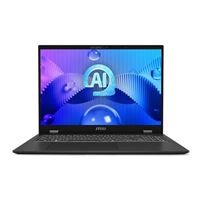Why Coders are Learning to Love Copilot
Survey finds 70% of coders are using or planning to use AI tools in their development process.News

Image: Dall-E; Prompt: Dan Ackerman
That was, until I started typing in a logging statement with Copilot in the background. Suddenly, it suggested code that not only filled out the logging information I was looking for, but also in the same style I'd written the other bits of code.
I was hooked. And, apparently, I'm not alone.
More than 1.3 million customers are using Copilot, Microsoft told recently Bloomberg, including 50,000 businesses "ranging from small startups to corporations like Goldman Sachs, Ford and Ernst & Young."
But if you look beyond the headlines, there are also trust issues with these early versions of AI. Back in December, the New York Times reported that researchers had successfully extracted business and personal email addresses for more than 30 New York Times employees. This revelation gave weight to broadening concerns that AI is not merely pulling information from what it learns, but is also able to repeat it verbatim. (The NYT sued OpenAI saying it had used the company's articles to train chatbots without a copyright license.)
Immediately, I wondered if the bans on ChatGPT companies had handed down were a prescient effort to protect their trade secrets from spilling out into the public through an AI prompt. Stack Overflow's annual developer survey last year found similar concerns. Less than 3% of developers said they "highly trust" AI output, while nearly 70% said they "somewhat" trust or "neither trust or distrust."
PCs may be AI's fix
The good news is that some of these issues are already being fixed. OpenAI maker ChatGPT has created an "enterprise" version of its chatbot that includes enhanced security. Microsoft's popular GitHub Copilot coding AI also now offers a similar version of its service, giving companies more control over how it's used.
The next step is to remove the internet entirely. We can already run on-device AI chatbots today on most of our computers, though they're often limited compared to the versions we use over the internet.
Over the next few years, chipmakers like AMD, Apple, Intel, NVIDIA and Qualcomm are planning to enhance their products with AI-specific features, effectively creating a new category of AI-processing units similar to how we think of GPUs today. These NPUs, as they're often called, are going to be a key part of a new category of computers called the AI PC.
The good news is that if you're looking to buy a system that will be ready for AI, many of the specs for today's computers can get you started. They include:
CPU: Intel 14th-gen Meteor Lake or AMD Ryzen 7 8000G SeriesGPU: NVIDIA 4000-series or AMD 7000-series w/at least 12GB of VRAM
RAM: At least 32GB of DDR5 memory (Some local AI models use as much as 37GB of RAM. Yes, RAM.)
More AI, more places
While some people may not use AI for anything more than helping plan a birthday party, there are a lot of people who are using it for work, too.
Apple, Google and Adobe have increasingly built AI into photo editing, and Microsoft has been building AI into its office products to help create presentations, break through writer's block, or do whatever crazy things people do with spreadsheets.
Stack Overflow's developer survey found that 70% of respondents are using or were planning to use AI tools in their development process. Stack Overflow also found that the next generation of coders was more likely to be using or already have used AI tools, though overwhelming majorities of all respondents both said they'd used it or plan to, and also that it was "favorable" or "very favorable" for the development process (I guess they don't like typing a bunch of log statements either).
More on AI
Comment on This Post
See More Blog Categories
Recent Posts
This Week in AI: OpenAI Promises GPT-5 Changes
For Aug. 15, 2025: Perplexity bids for Google Chrome, Google adds "Create" tab to Photos, more impacts from AI energy needs, Elon Musk goes after Apple over OpenAI, companies still searching for AI profits.
Continue Reading About This Week in AI: OpenAI Promises GPT-5 Changes







